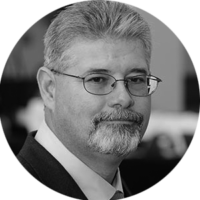2023 FM TRAINING OUTLOOK SURVEY KEY FINDING 3
ADDRESSING THE FM SKILLS GAP
SURVEY STATISTICS
Facility managers require a much broader skill set than most professionals. From trades skills, to technical and soft skills, it can take an entire career to learn it all through experience. While some areas of FM change rapidly and need constant attention, such as technology, regulations, and standards, most skills have a long shelf life and are transferable across positions.
Understanding where skills gaps exist and investing in facility management training early will benefit individuals and employers for years to come.
The Big Picture Goal Is Becoming Clearer.
of FM managers say the 24 topics included in the ProFM Body of Knowledge cover all the knowledge and skills needed for their teams’ success.
of FM managers identified environmental health & safety as a training priority for their teams.
of FM staff identified innovation as a top training priority for themselves.
FM Managers and Staff Identify Different Priorities.
Where FM Teams Need Training
(According to Managers)
- Environmental health & safety
- Communication
- Compliance & standards
- Leadership skills
- Project management
- Strategic planning
Where FM Staff Need Training
(Self-Identified)
- Innovation
- Project management
- Strategic planning
- Capital planning
- Compliance & standards
- Collaboration
Where FM Managers Need Training
(Self-Identified)
- Strategic planning
- Capital planning
- Leadership skills
- Project management
- Sustainability
- Contract management
INDUSTRY REACTIONS
Join the conversation by reviewing some of the additional insights shared on this topic or by sharing your own.
What Industry Experts Are Saying

Few other industries (besides FM) require that their staff have such a broad range of skills, from boiler and chiller plant operations, to energy management, to customer relations, to budgets and contract administration. In this field, you can’t just be a jack-of-all-trades, you have to be a master of all.
Anonymous Survey Participant

While 2023 presents a somewhat brighter picture of the work environment overall, we know the issue of retention and recruitment of FM professionals will be a pressing issue for the foreseeable future. Ensuring our existing workforce is highly skilled and credentialed will help offset the shortfall of professionals available in the external FM pipeline.
Stormy Friday, MPA, Hon. FMA, IFMA Fellow
President, The Friday Group
ProFMI Commission Chair

In order for the facility industry to evolve and successfully exhibit value, it is incumbent upon us, as its beloved practitioners, to continually advance our skill sets and employ new knowledge within our organization, collectively raising the bar. As the saying states, ‘a rising tide lifts all boats’; we must do our part to raise the tide.
John Rimer, CFM, ProFM
President, FM360 Consulting

The process of gaining a Facilities Management certification leads an individual to think differently about the job. Focus on the operation as a whole becomes important when people begin to understand how the business of Facilities Management can better support the goals and objectives of the company. This results in less unexpected downtime, better efficiency, and happier people that tend to stay longer because the business believes in and invests in them and their long term advancement and earning potential. This is a huge benefit to the company and the individual.
Steve Smith, CFM, CFMJ, MFE, DCEP, DCEP-IT
Director of Physical IT Network, Arvest Bank Operations

All FM companies will need to either train or hire-in the skills required for the future requirements of a new look FM due to the rapid advancements in AI, robotics, and adaptive reuse together with the decline in office usage.
Anonymous Survey Participant

My company is benefiting directly from my credential. I’ve enhanced my leadership skills and every day, I put into practice my knowledge of the five cross-functional competencies and four functional FM knowledge areas. In addition, a knowledgeable and educated workforce improves the company’s image and contributes to the company’s bottom line.
George Smith, ProFM
Cushman & Wakefield






